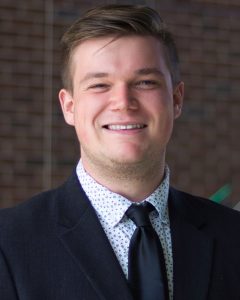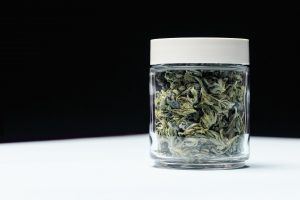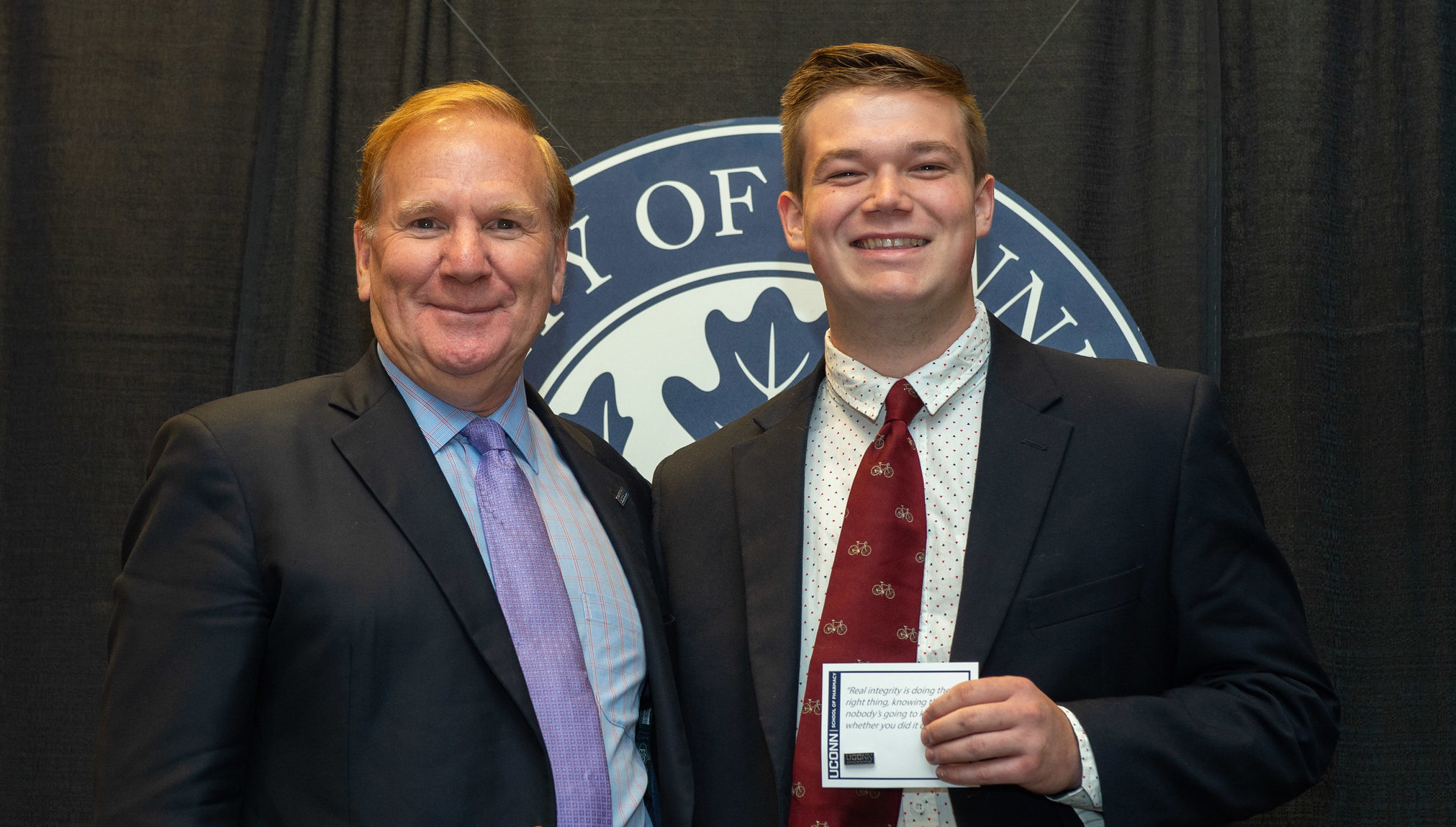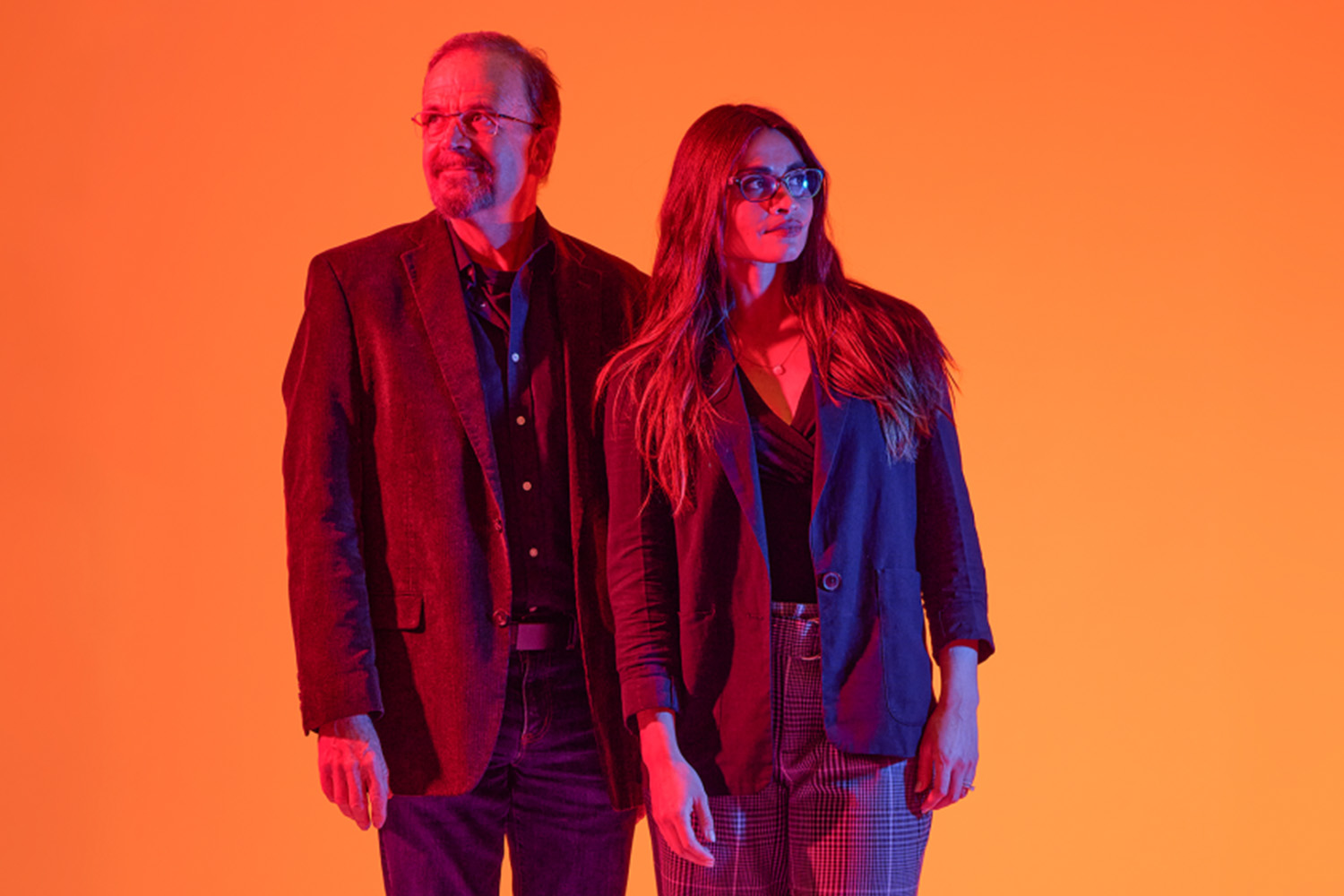Canyon Hopkins ’21 (Pharm.D.) was introduced to the complex world of prescription medications when he was just a kid. Care for a family member with multiple medical issues required frequent trips to the pharmacy and pick-ups were often followed by the family’s efforts to understand seemingly contradictory instructions from multiple physicians.
Because of this early exposure to the problems associated with what is termed polypharmacy, Hopkins learned that people often need an advocate to help them negotiate their medical pathways. He decided that studying pharmacy would give him an opportunity to fill that advocacy role. Fast forward just two years into the professional program at UConn and he has earned the School of Pharmacy’s 2018-2019 Diversity Award. How he achieved this distinction makes for an interesting story.

“Prior to starting in the School of Pharmacy, I had worked in the UConn Dairy Bar for three years,” he says, “but when I became a P-1 I really wanted to do something different to set myself apart. I looked up areas of specialty pharmacy, and ‘medical marijuana dispensary’ was listed as an option. I found that Prime Wellness was a highly regarded dispensary and it was located nearby, in South Windsor. I applied for a job and began working there during my second semester.
His supervisor at Prime Wellness, Algis Domeika ’96 (Pharm) says, “Canyon started with Prime Wellness in February of 2018. Having been a pharmacy and dispensary manager and supervisor for over 20 years, I have seen very few interviewees who have shown the level of enthusiasm and dedication that Canyon showed during his initial interview. He continues, to this day, to demonstrate these traits. Canyon’s role as a dispensary technician allows him to interact with a diverse number of patients. His empathy, understanding, and kindness are appreciated by the pharmacists, peers, and patients we service.”
Domeika adds that along with his day-to-day duties, Hopkins displays a thirst for knowledge. “He asks smart, informative questions of our pharmacists and has daily conversations with them regarding cannabis therapy and how it fits in with other pharmaceutical agents.”
For Hopkins, working at the dispensary puts him in contact with people from all walks of life who are dealing with serious – often end of life – medical conditions. He says, “The people who walk through the door [of the dispensary] are invariably nervous at first; some are embarrassed to be there because they are picking up marijuana.
But we have a lengthy intake process and we get to know them – and they get to know us – on a personal level. It is wonderful to see people begin to feel better and to see them start to take an active interest in their treatment. Putting pharmacists into dispensaries definitely improves patient satisfaction because they know they can ask us questions and we understand their concerns because we have taken the time to get to know them.”
Another important aspect of Hopkin’s pharmacy experience that led to the Diversity Award is his role at Khmer Health Advocates where he is doing independent study with Associate Clinical Professor of Pharmacy Practice Thomas Buckley. This organization, located in West Hartford, ensures that appropriate access to healthcare is available to the Cambodian American survivors of the Khmer Rouge genocide and their families.
Buckley says, “Having Canyon work with us at Khmer Health Advocates (KHA) is such a pleasure. His enthusiasm about his work, his compassion for patients, and his willingness to step out of his comfort zone are especially notable. Those attributes were all evident when he met with our first genocide survivor who was started on medical marijuana for PTSD. His enthusiasm was infectious for our patient and the KHA staff, and he was thrilled to learn how impactful this treatment has been, literally changing this person’s life.”

Mary Scully, KHA’s Clinical Director, says that KHA is pleased to be working with Hopkins because of his extensive knowledge of medical marijuana and his skill in translating that knowledge in a clinical setting.
Scully says, “Canyon is particularly able to bridge cultural understandings of healing and instill a sense of trust that comes from his desire to help and his ability to be objective. Compassion and knowledge is a powerful combination and we look forward to benefiting from both.”
While accolades from teachers, co-workers, volunteers, and others, might encourage some students to relax a bit, Hopkins doesn’t react that way. “Professor Buckley has taught me about the importance of practicing cultural humility when working with the Cambodian refugees and their families. That experience, alone, has made me realize how grateful I am for the life I have now.”
He continues, “I love pharmacy because what we hear from day one is that pharmacists are the most accessible health care providers and that’s why I love the profession. I want patients to know that if they have a concern, I will be there to help them understand their treatment and be comfortable with it.”
For now, Hopkins’ plans for the future include continuing his work at the cannabis dispensary. He hopes to eventually become involved with research and development and clinical trials supporting the use of medical marijuana – making it a treatment staple for those in need.



